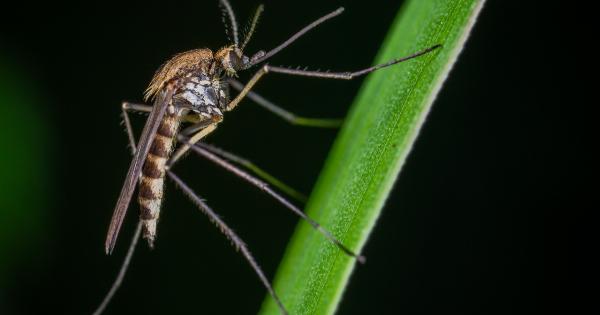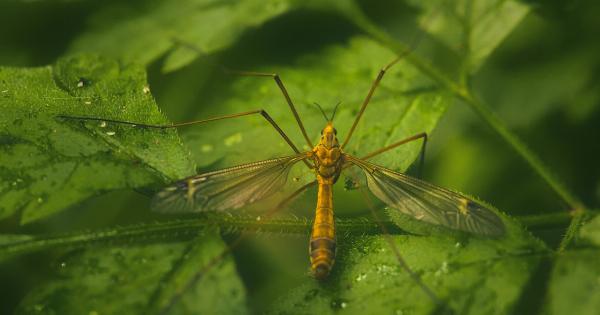Mosquito bites are a common occurrence during summer months especially in areas where mosquitoes are prevalent. Bites from mosquitoes are usually harmless and go away on their own within a few days.
However, in some cases, mosquito bites can become swollen and cause discomfort. If you are experiencing a swollen mosquito bite, there are a few things you can do to alleviate the swelling and discomfort.
1. Wash the area
The first thing you should do when you notice a swollen mosquito bite is to wash the area with soap and water. This helps to prevent infection and remove any dirt or bacteria that may have entered the bite.
Use lukewarm water and a gentle soap to avoid further irritating the skin around the bite.
2. Apply a cold compress
After washing the area, you can apply a cold compress such as a clean cloth soaked in cool water or an ice pack wrapped in a towel.
The cold compress helps to reduce inflammation and numb the area, which can provide some relief from the itching and swelling. Apply the cold compress for 10-15 minutes at a time, several times a day.
3. Take an antihistamine
If the swelling and itching from the mosquito bite persist, you can take an antihistamine such as Benadryl or Claritin.
These medications help to reduce the body’s reaction to the mosquito bite and can alleviate symptoms such as swelling and itching. Be sure to follow the recommended dosage instructions on the package.
4. Use a topical cream
You can also use a topical cream such as hydrocortisone or calamine lotion to reduce itching and swelling. These creams can be applied directly to the mosquito bite and can provide relief within minutes.
Be sure to follow the instructions on the package and avoid using the cream on broken skin.
5. Avoid scratching
As tempting as it is to scratch a mosquito bite, it is important to avoid doing so. Scratching can cause the bite to become even more swollen and can lead to infection.
If you find it hard to resist the urge to scratch, keep your nails short and consider wearing gloves or using a bandage to cover the bite.
6. Watch for signs of infection
If your mosquito bite becomes infected, it may develop into a more serious condition. Signs of infection include redness, warmth, and swelling in the area around the bite, as well as pus or other discharge.
If you notice any of these signs, seek medical attention immediately.
7. Prevent mosquito bites in the future
The best way to avoid swollen mosquito bites is to prevent mosquito bites in the first place. You can do this by wearing protective clothing such as long pants and sleeves, using insect repellent, and avoiding areas where mosquitoes are prevalent.
You can also use mosquito nets and screens to keep mosquitoes out of your home.
Conclusion
Mosquito bites can be a nuisance, but in most cases, they are harmless and go away on their own. If you experience a swollen mosquito bite, there are several things you can do to alleviate the symptoms and prevent complications.
Remember to wash the area, apply a cold compress, take an antihistamine, use a topical cream, avoid scratching, watch for signs of infection, and prevent mosquito bites in the future.



















